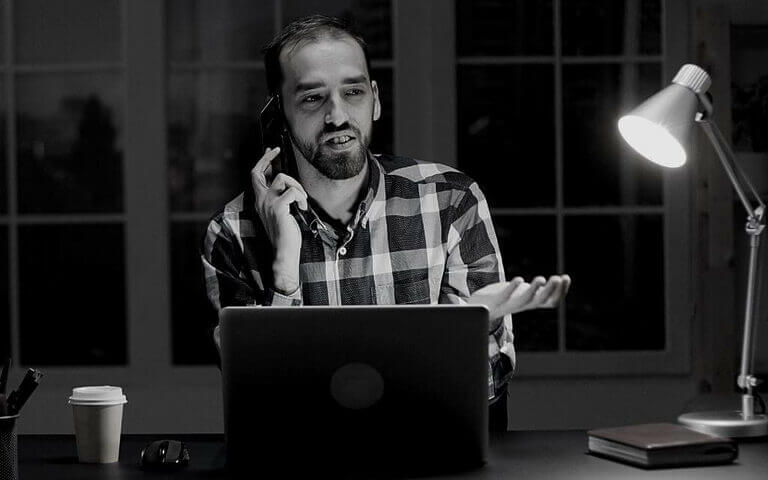With the demand for life coaching growing at an estimated 5.4% year over year, the different types of life coaching are also growing. If you’re a coach, it’s imperative that you niche down to separate yourself from the growing competition.
Life coaches can be trained to share their wisdom, insight, and expertise in various areas of life, including (but not limited to) personal growth, emotional well-being, mental health, career development, or relationships. They may also be trained to work with children, the elderly, or parents of young children. Life coaches can be found in a variety of settings, depending on the specialization of the coach, including corporate offices, schools, universities, health care facilities, or communities.
13 Most Popular Types of Life Coaching
Business Coach
Business coaches help business owners develop their skills and improve their business. Business coaches help clients think more clearly about their business and future. They also help you to improve business skills and conduct business more effectively.
Business coaching takes many forms and is often used as a support system for business owners. It can also be used as a tool for people who aren’t currently in business but would like to learn more about the process and then start a business.
Leadership Coach
A leadership coach is a specialist in the field of leadership. They are usually people who have been in leadership positions, have had leadership roles, or have been in contact with leaders who have needed help.
Leadership coaches are the ones who are there to help leaders reach their full potential. They can help with a number of things, including presenting an idea, resolving conflict, managing stress, improving communication, and many others.
Health Coach
A health coach provides guidance in the areas of diet, exercise, and self-care. They work to help people reach their health and wellness goals.
A health coach can work with any type of client, including people who are struggling with weight or chronic illness, people who are looking to be healthier, or people who are simply interested in learning more about how to be their healthiest selves. A health coach can provide guidance to people who are ready to make changes but are unsure where to start.
Transformational Coach
A transformational coach works with people at the deepest level possible. They have a deep understanding of their client’s inner world. They know how to help clients find their authentic selves and live a life that is aligned with their highest values.
They believe that a coach’s role is to support clients in creating a life of meaning that is congruent with their highest wisdom. They might use a combination of practices from different modalities, such as coaching, meditation, yoga, or neuro-linguistic programming to name a few.
They might integrate spirituality as a fundamental part of their practices. Transformational coaches also have a strong emphasis on self-care and conscious living.
Grief Coach
A grief coach is a person who specializes in helping others through their grief process. Grief coaches are there to support, help and listen to people who are grieving.
A grief coach is someone who helps you to understand your feelings, process your feelings, and find ways to move forward and heal following a loss.
Grief coaching is not, nor is it a replacement for therapy or counseling, it can be used as a supplement to it though.
Meditation Coach
Meditation coaches work with people who want to learn to meditate or want to incorporate meditation into their current practice. They often have experience learning and teaching meditation, and they provide instruction and support to help people on their journey.
They might also provide resources like books and CDs, provide guided meditations and videos, or offer meditation advice and tips.
Meditation coaches might offer meditation classes, provide meditation sessions on Skype or in person, and help people organize their own meditation practice. Meditation coaches might, and frequently do offer other services, such as life coaching, transformational coaching, Yoga. etc.
Positive Psychology Coach
More often, people are finding that their lives are becoming more and more stressful, and they are having a hard time keeping up with their daily lives.
A positive psychology coach is someone who helps people achieve a more positive life balance.
They help people to find things that are true to them and to feel good about what they do. They help people feel fulfilled and focus on their strengths more so than weaknesses.
Mindfulness Coach
A mindfulness coach will work with clients to help them create a mindfulness practice. Some examples of mindfulness practice include observing thoughts and feeling sensations, sitting in silence, and focusing on the present moment.
Mindfulness coaching helps to reduce this stress by helping people to better understand their thoughts and emotional reactions and learn how to create new habits and improve their daily functioning.
There are many benefits of mindfulness coaching. These benefits include increased happiness, reduced stress, greater self-awareness, improved emotional regulation, better sleep, and improved relationships.
Spiritual Coach
A spiritual coach is a professional who helps people deepen their understanding and awareness of spirituality. A spiritual coach could work with someone who wishes to explore their spirituality and deepen meaning or explore a spiritual practice with someone who has no previous background in spirituality.
Spiritual coaches work with a wide range of people including spiritual seekers, those who wish to integrate spirituality into their work, and those who already have a spiritual practice.
They may work with individuals, nonprofit organizations, and corporations, or they may work with a specific spiritual movement, such as paganism. They may work on an informal or formal level. The work can be one-on-one, or in a group, with one person acting as both coach and facilitator.
Christian Life Coach
A Christian life coach is someone who helps others who want to live their lives as Christ-centered.
A Christian life coach helps in a variety of ways, including providing spiritual encouragement to those who are struggling, helping them to establish a meaningful relationship with God, and providing guidance and support in their life.
A Christian life coach can also help to develop spiritual and emotional health. They can help to identify and overcome the obstacles in your life that are keeping people from being the best they can be.
A Christian life coach works to establish a meaningful relationship with God, using His word to guide people to make wiser decisions in their lives. A Christian life coach can help you to find ways to live a healthy and balanced life.
Life Purpose Coach
A life purpose coach is someone who can help one find their true life purpose. They are coaches who help one discover one’s life purpose and to help find a career and relationships that will help live that purpose in the way that is most meaningful to them.
Relationship Coach
Relationship coaches help individuals and couples create healthy relationships. They assist with issues from self-esteem to intimacy to conflict resolution.
They can offer advice and insights on topics like communication, intimacy, and trust.
The field of relationship coaching is relatively new. It wasn’t until the 1990s that what we now call relationship coaching started to emerge. The term “relationship coach” was coined by the author, speaker, and relationship expert, Dr. Daphne Rose Kingma.
Executive Coach
The executive coach is the best option when an executive is not sure what to do next. These coaches help to identify, assess and prioritize goals. When an executive is in a specific situation, the coach can help with the decision-making process.
They help executives to think strategically and to develop their own unique leadership style, identify the right people to work with, find the right team to lead a new business, and more.
Nutrition Coach
A nutrition coach is someone who provides nutritional advice and guidance to help one with their eating habits. They do this by taking a coaching approach to their nutrition, starting with behaviour change.
A nutrition coach works with people who are trying to lose weight, gain weight, or change their eating habits for the better. They also work with people who have special dietary needs such as gluten-free, vegan, dairy-free, or paleo diets. A nutrition coach also helps to address health concerns such as weight loss, food allergies, digestive issues, or lack of energy.
































